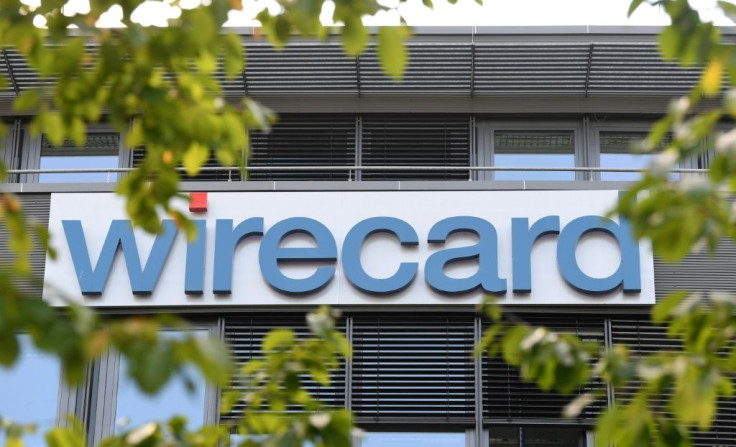Scandal-Plagued Wirecard Claims Missing $2 Billion Does Not Even Exist

KEY POINTS
- Moody’s also withdrew its credit rating on Wirecard
- Wirecard also withdrew its financial statements for 2019
- Banks in Philippines denied they have the missing cash
Wirecard AG, a German payment processor and financial services firm, said on Monday that the 1.9 billion euros ($2.14 billion) it had recorded in its books probably never even existed, raising grave questions about the company’s credibility and the reputation of German financial regulators.
The missing cash represented nearly one-fourth of the company’s assets.
Wirecard processes payments for financial service companies including Visa (V) and Mastercard (MA).
On Monday, Wirecard also withdrew its financial statements for 2019 as well as its results for first-quarter 2020.
“The management board of Wirecard assesses ... that there is a prevailing likelihood that the bank trust account balances in the amount of 1.9 billion [euros] do not exist,” Wirecard said.
In order to avoid catastrophe, Wirecard is currently engaged in emergency discussions with its banks and is also considering the sale (or closure) of some of its assets to raise cash.
Wirecard has also appointed Los Angeles-based investment bank Houlihan Lokey to guide it through the deepening crisis.
The scandal has seen Wirecard’s shares plunge by more than 85% over the past three days and its market value cut by some 11 billion euros ($12.4 billion).
Moody’s also withdrew its credit rating on Wirecard on Monday over “accounting irregularities.”
Moody’s noted it “believes it has insufficient or otherwise inadequate information to support the maintenance of the ratings.”
The missing funds “could trigger an event of default and allow creditors to withdraw lines of credit,” said Justin Tang, head of Asian research at United First Partners in Singapore.
On Friday, Wirecard’s chief executive Markus Braun departed and was replaced by James Freis, a former compliance officer at Germany’s stock exchange. Prior to his resignation, Braun suggested Wirecard was likely the victim of a massive fraud.
Last week, Wirecard said its auditor Ernst & Young refused to validate its 2019 accounts since it could not confirm the existence of the 1.9 billion euros in cash balances in trust accounts. Accounting giant KPMG also uncovered irregularities at Wirecard in an April investigation.
As far back as January 2019, the Financial Times reported that Wirecard had forged and backdated contracts in various suspicious transactions in Singapore. The company denied the allegations then. Late last year Financial Times suggested the company inflated sales and profits at some of its divisions.
Analysts at Mirabaud, a banking and financial group based in Geneva, said Wirecard’s membership in Germany’s blue-chip DAX index should be reviewed. Wirecard joined the DAX two year ago amid much fanfare.
Wirecard had promoted itself as a universal payments platform that would benefit from the expansion in digital payments. The company was a darling of investors prior to the recent crisis.
The company has almost 6,000 employees in 26 countries and posted revenues of $2.2 billion in 2018, more than a fourfold jump from 2013.
The scandal has extended from Germany all the way to the Philippines where some of Wirecard’s funds were alleged to have been deposited. However, the Bank of the Philippine Islands, or BPI, and BDO Unibank said the Wirecard money never reached their country, citing that documents which allegedly showed Wirecard deposits in the Philippines were false.
BPI Chief Executive Cezar Consing said: “It was very clear when we were shown the so-called certificate that it was spurious.”
Benjamin Diokno, the governor of the Philippines central bank -- Bangko Sentral ng Pilipinas -- also said both banks denied that Wirecard was even their client.
"The initial report is that no money entered the Philippines and that there is no loss to both banks," Diokno said. "The international financial scandal used the names of two of the country's biggest banks -- BDO and BPI -- in an attempt to cover the perpetrators' tracks.”
However, BPI told Reuters over the weekend that it had suspended an assistant manager whose signature appeared on one of the allegedly fraudulent documents linked to Wirecard.
Similarly, BDO told the central bank that one of its marketing officers likely fabricated a bank certificate.
Felix Hufeld. president of Germany’s financial watchdog, the German Federal Financial Supervisory Authority, also known as BaFin, characterized the scandal engulfing Wirecard as a “total disaster.”
“It is a scandal that something like this could happen,” Hufeld said.
But BaFin itself has come under criticism for its handling of the Wirecard debacle.
Fabio De Masi, a leftist member of the German Bundestag, condemned BaFin for neglecting its duty with respect to Wirecard.
But Olaf Scholz, the German finance minister, defended the regulators in the Wirecard matter.
“I think the supervisory institutions worked very hard and they did their job — this is what we see today,” he said.
Wirecard has until Friday to deliver its 2019 financial statements. Should it not meet the deadline, the company might suffer the loss of €2 billion euros ($2.25 billion) of credit.
© Copyright IBTimes 2025. All rights reserved.





















